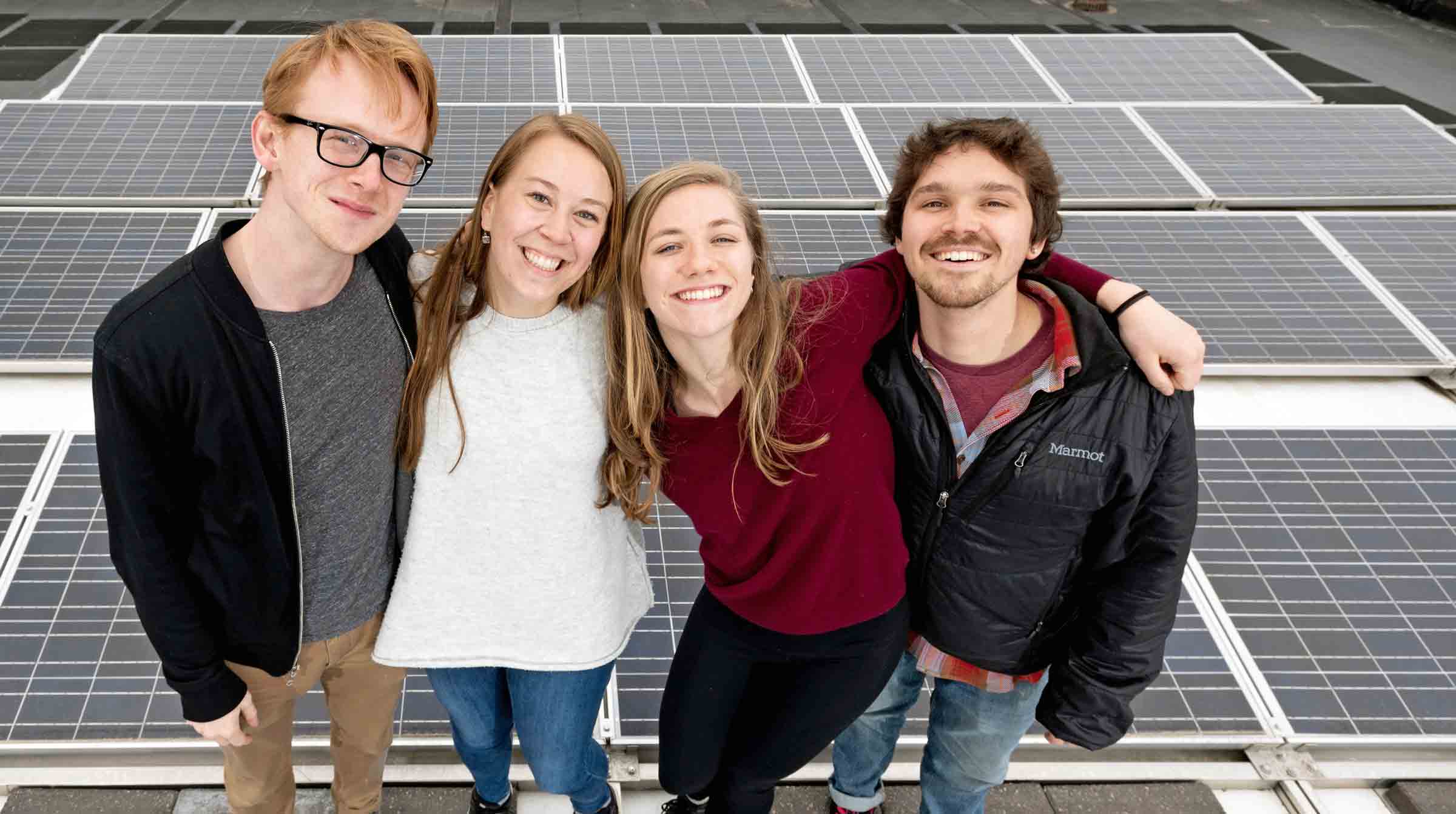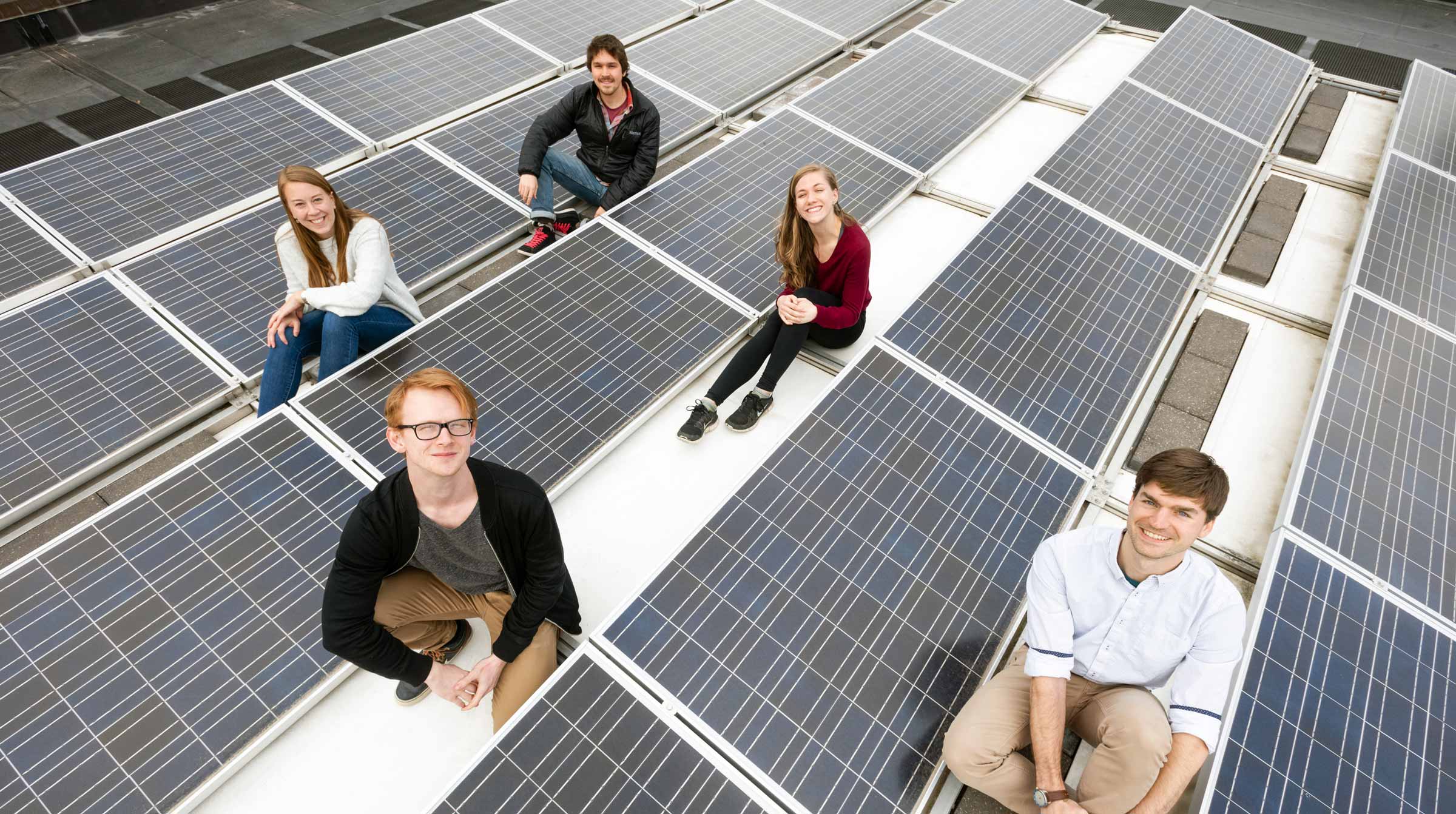Vassar College has reached an agreement with BQ Energy, of Wappingers Falls, to purchase about 15 percent of its electricity needs through a community solar project in Esopus, about 12 miles west of the campus.
The agreement is part of the college’s ongoing efforts to achieve carbon neutrality by 2030. Thanks to student leadership, the college will also be installing solar panels at Vassar Barn, home of the Environmental Cooperative, this spring.

Alistair Hall, Vassar’s sustainability coordinator, called the college’s recent projects a team effort. “These initiatives would not happen if it were not for the ideas, energy, and initiative of countless students, employees, and the support of the entire Vassar community,” Hall said.
The solar arrays will not only reduce the college’s carbon footprint and provide new educational opportunities but will also save the college money on its utility bills. Total savings the first year are estimated at $20,000, Hall said. The project also provides an opportunity for upwards of 200 local businesses and residents to benefit from reduced utility bills.
Vassar President Elizabeth Bradley called the project “a ‘win-win’ for Vassar and for the environment. We’re proud to support this community solar project, which leverages the college’s purchasing power while promoting the use of clean, renewable energy.”
The Vassar project is scheduled to be completed by early next year. It is located on the site of the former Town of Esopus landfill in Ulster County. Solar panels already on the site are generating power for the town’s government offices and water treatment plant.
BQ Energy Managing Director Paul Curran says the Vassar project is one of several the firm is undertaking in the region. “We do all of our projects on former landfills or other ‘brownfield’ sites that can’t be used for anything else,” Curran said. “Every one of our projects has environmental benefits while saving our clients money.”
BQ Energy is operating similar solar projects for the State University of New York at Buffalo, Canisius College and St. Bonaventure University in upstate New York. A solar project located on the City of Beacon’s former landfill will provide the bulk of electricity for the city government offices starting in May, Curran said.
The Board of Trustees approved the funding for the solar project for Vassar Barn last year. The initiative was launched by students enrolled in an Environmental Studies class taught by Associate Prof. of Chemistry Stu Belli in 2016. Hall said he had a “proud parent moment” when the trustees voted in favor of the project after hearing a presentation from the students.
One of those students, Anna Abrams ’18, said installing the solar panels on Vassar Barn was particularly appropriate. “It’s a place all of us on this project have worked while we were at Vassar,” Abrams said, “and it’s a place the public visits a lot, so it’s an example for the community.”
In addition to the Vassar Barn project and the agreement with BQ Energy, Vassar purchases about 10 percent of its electricity needs from Gravity Renewables, a firm that operates a hydroelectric plant in Beacon.
